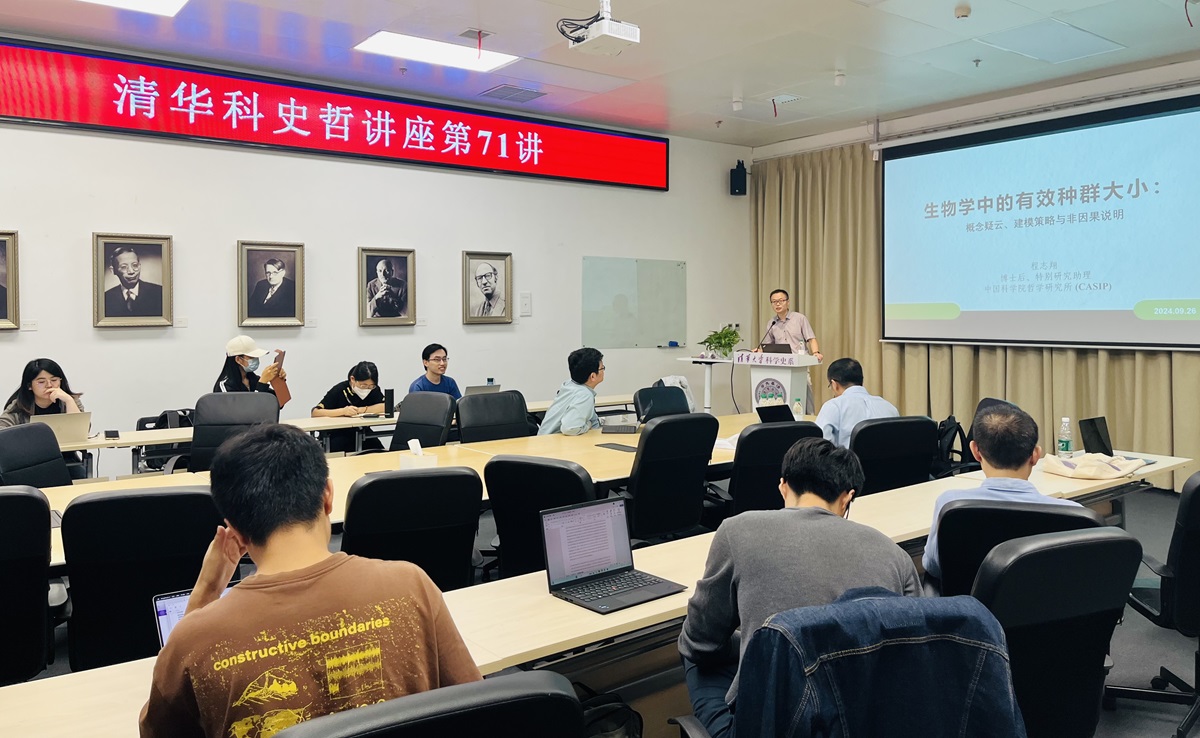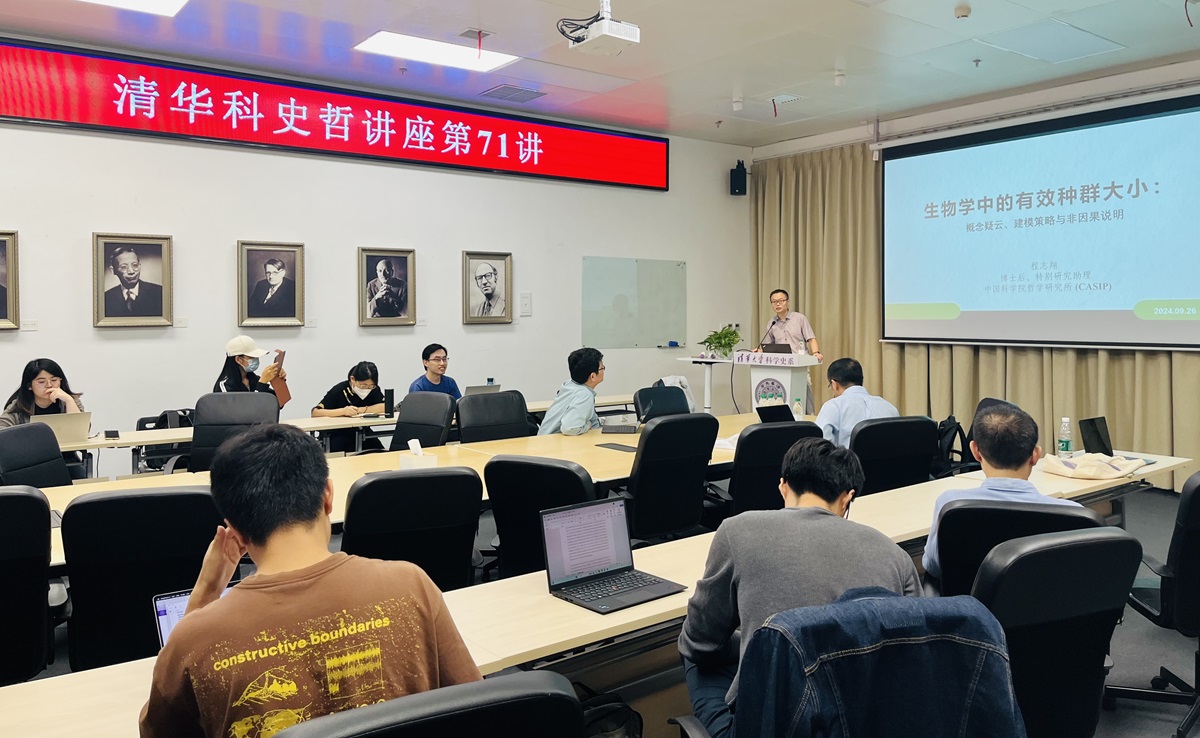On the afternoon of September 26, 2024, Tsinghua University's Department of the History of Science hosted the 71st session of the THU History and Philosophy of Science Lecture Series in Room B206 of the Mengminwei Humanities Building. Chaired by Professor Wang Wei, the lecture featured Cheng Zhixiang, Postdoctoral Fellow at the Institute of Philosophy, Chinese Academy of Sciences, who presented on "Effective Population Size in Biology: Conceptual Ambiguities, Modeling Strategies, and Non-Causal Explanation."

Effective population size (EPS) is an intriguing conceptual cluster that remains underexplored in the philosophy of biology. Invented by population geneticists, EPS has undergone a long evolutionary history (from the 1930s to present) and finds applications in disciplines such as conservation biology. However, outside population genetics, it faces widespread misunderstanding, and even among population geneticists, its definitions, formulations, and interpretations lack consistency and consensus.
In his presentation, Professor Cheng briefly traced the conceptual development of EPS, introducing various types (including inbreeding EPS, variance EPS, and eigenvalue EPS) while cataloging common misconceptions: such as oversimplifying it as the number of breeding individuals in a population, failing to distinguish between different EPS concepts, and neglecting its connection to the Wright-Fisher model. Subsequently, Professor Cheng demonstrated that population geneticists themselves disagree on defining EPS. Regarding the epistemic nature of EPS—what it truly represents or characterizes—he argued that two distinct positions exist among scholars: some adopt a "monist-dynamical" understanding, maintaining that different EPS definitions share a unified essence in measuring the magnitude or effect of genetic drift in natural populations; others favor a "pluralist-kinematic" interpretation, viewing various EPS types as metrics for different aspects of population dynamics without presupposing any common causal process.
Professor Cheng contended that while EPS relates closely to genetic drift, characterizing its essence simplistically as measuring drift’s effect or degree is erroneous. Unlike idealized Wright-Fisher populations, diverse natural populations see EPS values influenced by numerous factors beyond drift—including mating patterns, population structure, and natural selection. He anticipated two counterarguments from proponents of the drift interpretation: first, that other factors indirectly operate through influencing drift (the mediationist defense); second, that "contextualized" causal narratives justifiably emphasize drift while backgrounding other factors (the pragmatic defense). Through cases involving inbreeding EPS, he demonstrated both defenses’ inadequacy.
Professor Cheng further argued that EPS computational models exemplify a distinctive modeling strategy. When idealized models prove inadequate for studying target natural populations, two approaches exist: the first, more common strategy adjusts models to fit populations (de-idealizing or reconstructing models); the second, EPS-represented strategy "adjusts" natural populations to fit models (preprocessing data while retaining idealized frameworks). He asserted that this modeling strategy, embodied by EPS and its associated Wright-Fisher model, filters out or severely distorts real causal information in target populations. Consequently, EPS serves as a special case for examining whether modern evolutionary models can furnish non-causal scientific explanations: if EPS and Wright-Fisher models explain changes in natural populations, they achieve this without tracing actual causal processes or capturing genuine causal structures.

During the Q&A session, faculty and students engaged in vigorous discussion. Finally, Professor Wang Wei presented a commemorative gift to Professor Cheng on behalf of the Department, concluding the lecture.

